There are few surprises in the third season of Love, Death and Robots. Nine episodes of storytelling, partly looking at the metaphor of reality, partly focusing on the fate of humanity, and one episode emphasizing the self-rounding of consciousness.
As the three chattering robots wonderfully spout off about the human path to death, the astronauts on the failed Io expedition chant out Coleridge and Wordsworth. As the queen of the swarm says, intelligence and culture are not the determining factors in the survival of the pack - sometimes civilization is ironic like that.
Big time, little time
All six episodes provoke associations that refer to reality, which is not a bad way to vent for the people of Earth, who have been mired in war, famine and economic recession so far this year.
Three Robots: Exit Strategies not only mocks the human proletariat and bourgeoisie, but also the technological elite that have been so prominent in recent years. Rather than a desire to 'change the world', the latter is a 'megalomaniacal' daydream. The recent plunge in US technology stocks also reflects to some extent the loss of public confidence in 'technology to save the world' amidst hyperinflation.
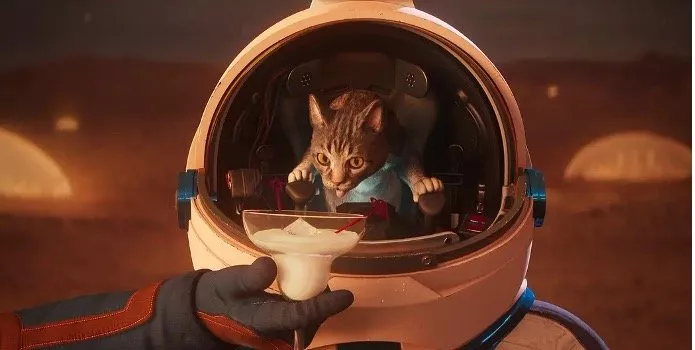
🙂 The post-credits egg of "Three Robots: Exit Strategy": 'Who are you waiting for, Elon Musk?'
Night of the Mini Dead is a Sims-like cutscene of famous sights, with an endless array of zombies walking the streets, even evolving into a Godzilla version that takes you to famous landmarks from Los Angeles to the Vatican, and the White House spokesman's "Zombies? There are no zombies in our country" by the White House spokesperson, as if it were a rehash of the various 'official' statements made after the Covid-19 pandemic, and a fantastic bit of 'echoing' of the UFO hearings the other day.
Kill Team Kill (Kill Team Kill) is similar to Sharp Objects, with GI's fighting Cyborg Grizzlies. Also bullet-riddled, the big boss at the bottom of the level in In Vaulted Halls Entombed is a Cthulhu with mind control powers and more eyes than Lovecraft was originally set up for. Regardless of the tone 'cool' or 'not cool', both episodes have a powerful enemy, even if the enemy is of their own creation or a big ancient monster - it's fight or die, a 'clash of civilizations' of sorts.
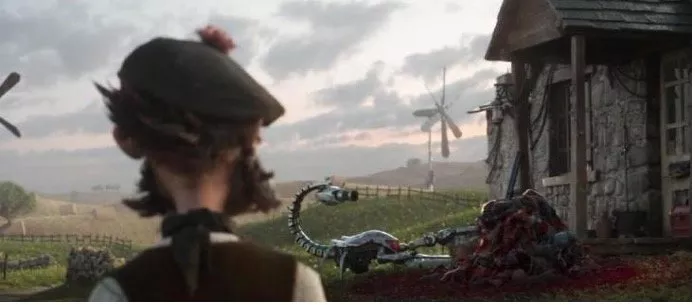
▲ TT15 equipped with air-cooled autocannon, armored chassis and the same target locking technology as the Navy drones... lazy American imitation of the Sark Giant!
The 'evolution' of rats can certainly produce a budding civilization. Mason's Rats, the story of a grumpy Scottish farmer who is at odds with the rats in his barn, and the smiling sales manager of an extermination machine - a bona fide arms dealer. As the war escalates tragically, War Machine is updated again and again, and the mobile version of the big killer TT15 makes a really familiar appearance, looking like one of the Decepticons that morphed into Scorponok, the scorpion from the movie Transformers 1.
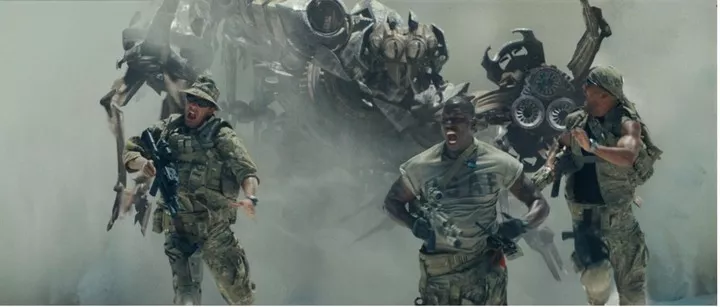
▲ "Transformers 1" attack on U.S. troops in Qatar by Decepticon member Sark the Giant (second from left)
In the real world, the war that began in the spring continues. "There are 550 million arms in the world, that's 1 gun for every 12 people, the only problem is how do we get the other 11 people to have guns too." For the 'King of War', the arms trade is more epic than the war itself.
Jibaro, which best exemplifies the 'clash of civilizations', was a big hit in this country, mainly because most people would associate it with the fate of the colonies in South America. The heroine Siren, covered in gold and jewels, mistakenly falls in love with the hearing-impaired knight Jibaro, who robs her of her wealth, dumps her at the bottom of a river, and is eventually avenged by Siren.

The story of Siren has been told by many, but it is not new.
The bloodletting of the Aztec and Inca empires by Spanish colonists in the 16th century, the mining of vast quantities of gold and silver, and the long period of resource plunder and economic control left Latin America in the tragic situation of 'cut veins'. In countries and regions that were colonized or semi-colonized, there is a certain historical psychology and 'cultural self-consciousness' implied by the reading of female natives/banshees as local civilizations and men as invaders. Some people have made a big deal of attacking the 'over-interpretation', and there is no need to do so.
The story of Good Hunting (Good Hunting) and Jibaro in the first season is somewhat similar in shape. Originally written by acclaimed science fiction writer and translator Liu Yuquan, Good Hunting also stems from the humiliating memories of third world countries facing the devouring of their own traditions by modern Western civilization, while the former uses a fusion of steampunk and Chinese landscape martial arts to tell the story of the orphans' resilience in using the weapons of modernity to reinvent themselves and create a cultural rebirth; the latter counts as a simple folk tale rewrite with little to recall.
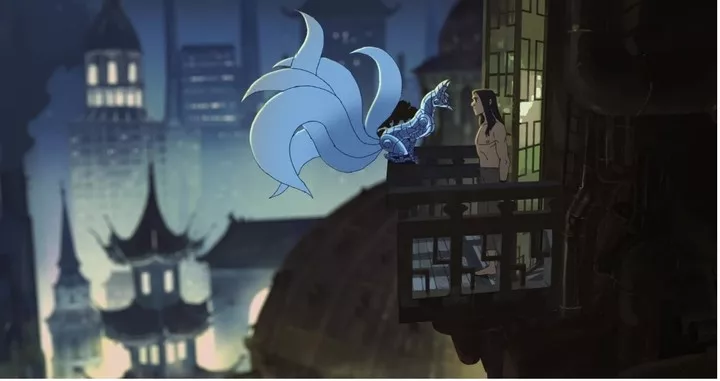
▲ "Happy Hunting", people and people eventually forget about each other
Actually, it's not in bad taste to talk about foxes, ghosts, and flower demons, but it's not much fun to focus only on their love and betrayal. After all, there's too much talk about it in Liaozhai Zhiyi.
This six-episode series is not a masterpiece, partly because it is sometimes closely linked to reality and smacks of "dark fiction", straightforward and shallow, and the themes are clichéd and lacking room for chewing, partly because it is not very ambitious, hilarious and violent, colorful and forgettable after viewing.
The future of humanity: individual or collective?
Bad Travelling and Swarm are worth comparing together. The former is concerned with how individuals adjudicate justice and conscience, while the latter is concerned with the ways of racial continuity.
A Bad Trip is directed by acclaimed director David Fincher in his first animated feature, and the blood and guts scenes from Fight Club are still visible in A Bad Trip. The original comes from acclaimed British sci-fi author Neil Escher, who has based much of his work around an original 'Polity' universe.
In the episode, the shark fishing ship at sea is attacked by a man-eating crab monster, which demands that the captain take it to a nearby island, to which the captain falsely obliges. The captain wants to destroy the monster, the crew wants to dump the monster and be done with it, and after a few tries, the entire crew feeds the monster, and the captain eventually burns the monster and gets out in one piece. The horror of this story lies not in the monster's cannibalism or the crowd's betrayal, but in the fact that the captain is an all-knowing, all-powerful, and morally impeccable "God" who can decide whether people live or die at will.
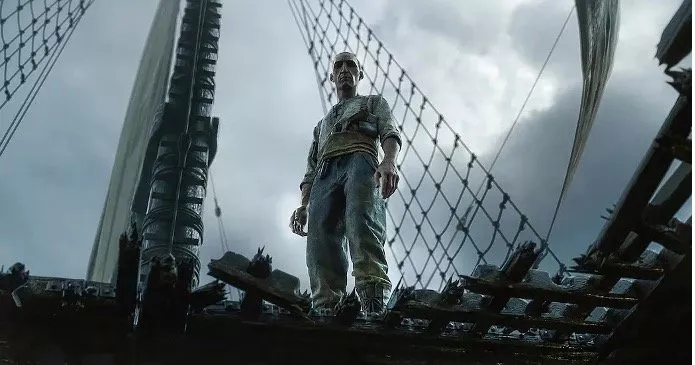
▲ "Bad Trip", this is the 'God' Captain that all beings must look up to
Sending a monster to an uninhabited island or to a multiplayer island is similar to version 2.0 of the "trolley conundrum" - go to an uninhabited island and you might get eaten by a raging monster yourself, but go to a multiplayer island and you'll be fine, others won't. The crew generally felt that the risk of cheating the monster was too high, and that the inhabitants of Multiplayer Island were not too friendly to them anyway, so they might as well send the monster to feast on them. The captain thus decides that the group has no conscience, and subsequently divides the crew internally using a subterfuge 'voting procedure' that each cracks and then kills.
Is this the birth of law, or the demise of law?
The white-robed goddess of justice is blindfolded. The white robe symbolizes her immaculate morality and uprightness. Blindfolded, because justice relies purely on reason and not on sense impressions. If one man has superior reason, physical strength and intelligence, can he decide the fate of the entire collective? It is worth pondering that the Captain's unassailable 'power' is somehow given by the monster.
All American superhero stories dare not shy away from this topic. The most typical 'Superman' always has to face the problem of 'law-abiding', catching the bad guys and handing them over to the police, not to be lynched, so that everyone can be happy. Yale jurist Robert Cover famously said, "Blindness is not blindness, it's self-restraint."
How are parts of humanity, individually and collectively, going to make choices in some extreme circumstance where there are no procedures, no laws?
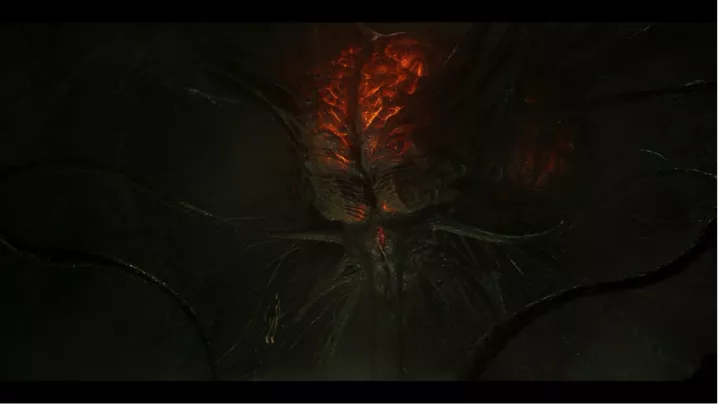
▲ "Heart of the Swarm" by The Swarm
According to Swarm, humanity is destroying fast, mostly because it thinks too much.
Nominated for the 1983 Hugo and Nebula Awards for Best Short Medium, the novel was written by renowned science fiction author and cyberpunk founder Bruce Sterling. Acclaimed director Tim Miller directed the animated series of the same name.
Sci-fi is fond of building insectoid civilizations. Things like the protagonists in the Aliens series, the arachnid creatures in Starship Troopers, the insectoid race in Ender's Game are typical, and the game Warhammer Mass Effect has a heavy dose of insects in it.
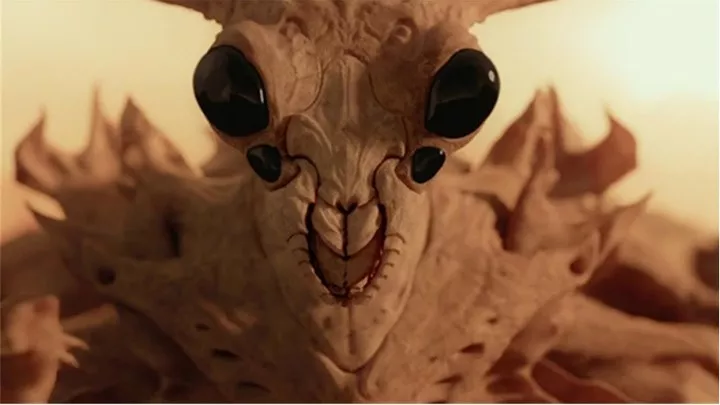
In "Ender's Game," 12-year-olds face off against the Bugs in a showdown
The behavioural patterns of social insects like ants and bees are also known as 'group intelligence'. The control of their groups is distributed, without central control, and self-organizing. Thus it has a strong attraction and control group effect on centrally controlled human societies.
The Queen in The Swarm says "intelligence is not the decisive factor for survival", contrasting sharply with humans who say "they are just low intelligence creatures who can't look up at the stars". In nature, the 'purpose' of all creatures is to reproduce, and humans' thinking about reproduction and resistance to it, including unconscious destruction, after being 'above' nature, have resulted in collective destruction.
So, Bad Trip vs. The Swarm might just have to be a head-to-head confrontation between Themis, the goddess of justice, and Hera, the goddess of fertility.
After flying into space, still face yourself
The Very Pulse of the Machine has a very last century sci-fi retro flavor, or like a mini version of Solaris, and is one of the best episodes of the entire third season. The original story won the 1999 Hugo Award for Best Short Story and was written by Michael Swanwick, an American science fiction writer who has won five Hugos and a Nebula. A book of Poems of the Old Days is featured in the film, and the name of the author written on the cover is Michael Swanwick.
In the story, the protagonist and a colleague suffer an accident while exploring Io (Io) and must return to the lander before they run out of oxygen. Along the way, she uses hallucinogenic drugs to stay fit and drags her dead colleague along for the long haul, only to hear over the radio a voice claiming to be Io (Io), "she" recites the beautiful poetry of the dead man's heart and persuades the protagonist to join Io's collective consciousness.
The Expanse, a popular science fiction series in recent years, also features one of the heroines being infected with a virus that transforms her consciousness into the near-Earth asteroid Eros.

▲ In "The Vast Vault of Heaven", Julie and Eros Star transformed into one
The Pulse of the Machine picture pays homage to French comic book master Moebius, who has many space opera or cyberpunk-type drawings, represented by Arzach, which influenced a series of Hollywood sci-fi films such as The Fifth Element, The Abyss, Alien, and Star Wars, and is said to have influenced Japanese artists such as Hayao Miyazaki, Katsuyo Otomo, Naoki Urasawa, and Taiyo Matsumoto.

▲ Io twinkles, with Jupiter's big red spot clearly visible in the background
With simple lines and bright colors, Io is free of too many elaborate environmental details, a pure dusk in which the protagonist is on the verge of the limit of physical strength and endurance, finally giving up his physical body and integrating into Io with his mind.
The Io in the story is similar to science fiction writer Lem's 'Solaris', a 'mirror' in itself. Before the arrival of humans, it was a reflection of itself and everything else; after the arrival of humans, the planet may reflect the logic of intelligent beings. The planet is pure, with no so-called 'subjective emotions', but merely a purposeless 'copy' of human memories, with all their confusion, paranoia and confusion.

▲ "Solaris" was made into a movie "Flight to Space" by director Tarkovsky (1972)
Mankind is here caught in the labyrinth of the consciousness of the planet, or rather in the labyrinth of his own consciousness. Li He has two poems about such a situation: "One can hold a sword to a man, but one does not understand the shining body."
In the vastness of the universe, mankind can only use itself as a scale. But the universe does not necessarily abide by such a scale, and this is the eternal helplessness of mankind, subject to the confinement of physical, chemical and biological scales. If there were a planet that allowed man to switch scales, could we resist such a temptation?